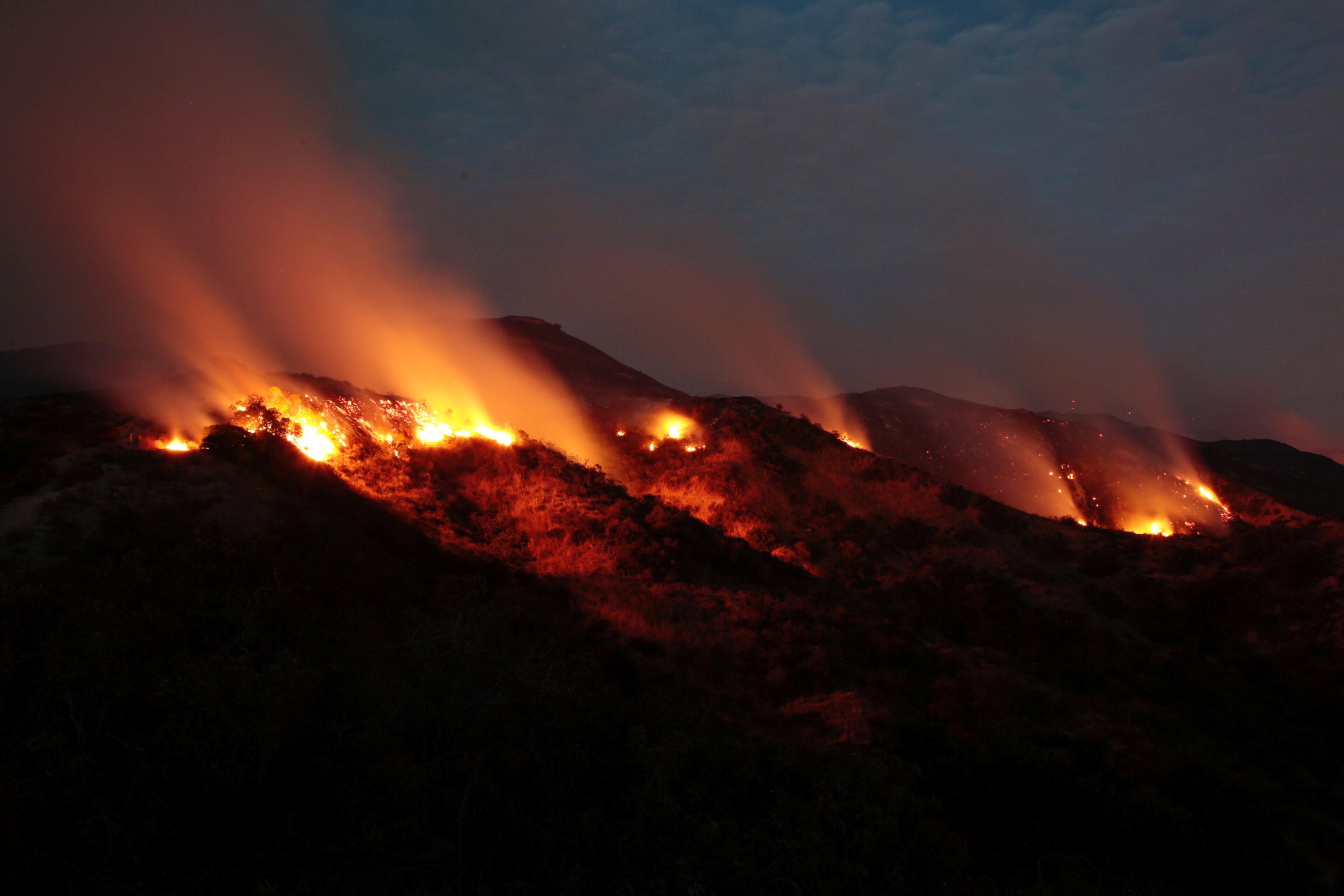Los Angeles declares state of emergency as wildfires cast pall of smoke over much of California
Oregon, Washington and Montana are also hit by major blazes and more hot weather is on the way

Your support helps us to tell the story
From reproductive rights to climate change to Big Tech, The Independent is on the ground when the story is developing. Whether it's investigating the financials of Elon Musk's pro-Trump PAC or producing our latest documentary, 'The A Word', which shines a light on the American women fighting for reproductive rights, we know how important it is to parse out the facts from the messaging.
At such a critical moment in US history, we need reporters on the ground. Your donation allows us to keep sending journalists to speak to both sides of the story.
The Independent is trusted by Americans across the entire political spectrum. And unlike many other quality news outlets, we choose not to lock Americans out of our reporting and analysis with paywalls. We believe quality journalism should be available to everyone, paid for by those who can afford it.
Your support makes all the difference.Smoke filled the sky and ash rained down all over Los Angeles from a destructive wildfire, prompting the city to declare a state of emergency.
And it was just one of several blazes that sent thousands fleeing homes across the US West during a blistering holiday weekend heat wave.
In Oregon, crews rescued about 140 hikers forced to spend the night in the woods after fire broke out along the popular Columbia River Gorge Trail. Search and rescue crews air-dropped supplies as flames prevented the hikers' escape.
Wildfires also burned in a 2,700-year-old grove of giant sequoia trees near Yosemite National Park, forced evacuations in Glacier National Park and drove people from homes in parts of the West struggling with searing temperatures.
Los Angeles Mayor Eric Garcetti declared a local emergency and at the state level, Governor Jerry Brown did the same for Los Angeles County after the wildfire destroyed three homes and threatened hillside neighbourhoods.
More than a thousand firefighters battled flames that chewed through more than nine square miles of brush-covered mountains as authorities issued evacuation orders for homes in Los Angeles, Burbank and Glendale.
Temperatures were in the mid-to-high 90s but crews got a break from increased humidity and winds that calmed to less than 5 mph.
"That can change in a moment's notice and the winds can accelerate very quickly," Los Angeles Fire Captain Ralph Terrazas told reporters. "There is a lot of fuel out there left to burn."
Officials were keeping an eye on thunderstorms in the mountains to the north, which could bring welcome rain but also the risk of flash floods and lightning.
Burbank resident George Grair was not in the evacuation zone but watched uneasily as flames blackened a hillside in the near distance.
"It's very difficult to feel safe. I've got kids in the house," he told KABC-TV. "I probably slept two hours all night."
Temperatures at Los Angeles International Airport reached 97 degrees Fahrenheit (36 degrees Celsius) on Sunday, topping the previous record mark of 92 (33 Celsius), set in 1982. Records were also set in parts of Ventura and Santa Barbara counties, where the temperature hit 101 degrees (38 Celsius).
San Francisco residents, meanwhile, stifled under a third day of a rare heat wave in the coastal city, although highs in the San Francisco Bay Area fell Sunday from all-time records set the previous two days.
"I went to Home Depot, Walgreens, Office Depot, Target. They were sold out!" downtown office worker Alganesh Ucbayonas said, detailing her unsuccessful search for a fan.
Fires burning up and down the Sierra Nevada and further to the northwest cast an eerie yellow and grey haze over much of California, prompting alerts because of poor air quality.
In the Pacific Northwest, high temperatures and a lack of rain this summer have dried out vegetation that fed on winter snow and springtime rain.
Officials warned of wildfire danger as hot, dry days were forecast across Oregon and Washington over the holiday weekend.
In Washington state, Governor Jay Inslee proclaimed a state of emergency across all counties as three major fires closed recreation areas and prompted evacuations.
Flames in Montana's Glacier National Park prompted officials to evacuate all residents, campers and tourists from one of the most popular areas of the park.
Forecasters said more heat could be expected when remnants of Tropical Storm Lidia move north from Mexico's Baja California during the weekend.
AP
Join our commenting forum
Join thought-provoking conversations, follow other Independent readers and see their replies
Comments